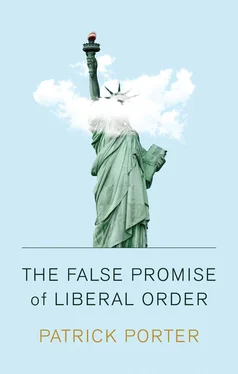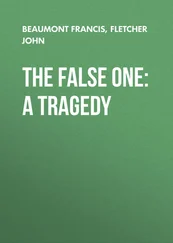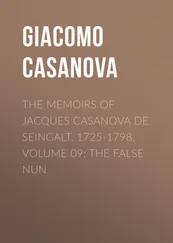Patrick Porter - The False Promise of Liberal Order
Здесь есть возможность читать онлайн «Patrick Porter - The False Promise of Liberal Order» — ознакомительный отрывок электронной книги совершенно бесплатно, а после прочтения отрывка купить полную версию. В некоторых случаях можно слушать аудио, скачать через торрент в формате fb2 и присутствует краткое содержание. Жанр: unrecognised, на английском языке. Описание произведения, (предисловие) а так же отзывы посетителей доступны на портале библиотеки ЛибКат.
- Название:The False Promise of Liberal Order
- Автор:
- Жанр:
- Год:неизвестен
- ISBN:нет данных
- Рейтинг книги:4 / 5. Голосов: 1
-
Избранное:Добавить в избранное
- Отзывы:
-
Ваша оценка:
- 80
- 1
- 2
- 3
- 4
- 5
The False Promise of Liberal Order: краткое содержание, описание и аннотация
Предлагаем к чтению аннотацию, описание, краткое содержание или предисловие (зависит от того, что написал сам автор книги «The False Promise of Liberal Order»). Если вы не нашли необходимую информацию о книге — напишите в комментариях, мы постараемся отыскать её.
The False Promise of Liberal Order
The False Promise of Liberal Order — читать онлайн ознакомительный отрывок
Ниже представлен текст книги, разбитый по страницам. Система сохранения места последней прочитанной страницы, позволяет с удобством читать онлайн бесплатно книгу «The False Promise of Liberal Order», без необходимости каждый раз заново искать на чём Вы остановились. Поставьте закладку, и сможете в любой момент перейти на страницу, на которой закончили чтение.
Интервал:
Закладка:
Not only did a liberal order never truly exist. Such an order cannot exist. Neither the USA nor any power in history has risen to dominance by being ethical, straight or truthful, or by supporting allies, not without a panoply of darker materials. To suggest otherwise covers over a bloodier, more conflicted and more imperial history, of a superpower driven both by ruthless power-seeking and messianic zeal, in a world shaped also by resistance. The hegemon imposed, stretched or ignored rules, built and bypassed institutions. By turns it coerced, cajoled and abandoned allies, to remain in the ascendancy. When overblown notions of its world-historical mission took hold, it led to unexpected chaos and unanticipated pushback, and damaged liberal values at home. At times, it was simply defeated. Euphemistic memory does not deny this history. It just refuses to linger on it. It loses sight of how our world was, and is, ordered – indeed, what ‘ordering’ involves, deflecting attention from its hard dilemmas.
If you share these doubts, read on. If you are a believer and are already irked, let me try to persuade you, in the spirit of liberal toleration.
The Context
Sudden and distressing changes have rocked the international system since the early 2010s. Hostile revisionist states are on the move, ranging from Russia’s seizure of Crimea and its covert campaigns of subversion and terror; China’s domestic repression, its expansion in the South China Sea, its bullying of foreign populations and its threats to Taiwan; and North Korea’s acquisition of a deliverable nuclear weapon. There has been sectarian bloodletting in the Middle East, mixing war with humanitarian crisis and the flight of refugees, and intensifying security competition. Only recently, the black flags of the Islamic State flew above Mosul. There are the agonies of the Arab Spring revolutions, which lurched into despotic reaction in some countries, state implosion in others. Economic protectionism is again on the rise. Crisis also rises within, in the fallout over Britain’s withdrawal from the European Union (EU), nationalist populist movements in Europe, Asia and Latin America, and the coming of authoritarian ‘strongmen’. In particular, political tumult and the election of Donald Trump to the US presidency have driven anxious commentators to lament the collapse of a post-1945 universe of institution-building, rule-following and enlightened leadership. Growing discord makes more faceless but tangible terrors, like the climate crisis, even more daunting.
These disturbances draw a widening cast of transatlantic security officials, experts, scholars, politicians, military officers, mandarins, plutocrats and public intellectuals to offer nostalgic visions of the past, and to speak of a political end time. 13They either warn that the survival of a rules-based liberal world order is at stake, or they write its obituary. We are witnessing the ‘end of the West as we know it’, the abandonment of ‘global leadership’ by its ‘long-time champion’, and a ‘Coming Dark Age’. Foreign Affairs , the house organ of the foreign policy establishment, recently asked thirty-two experts ‘Is the Liberal Order in Peril?’. Twenty-six agreed, confidently, that it is. 14
The new disorder attracts grand claims. At the 2019 Munich Security Conference, former leaders issued a Declaration of Principles that underpinned the post-war order: ‘democracy; free, fair, and open markets; and the rule of law’. 15With a stroke of the pen, history’s darkness is banished and a world of discrepant experiences is wished away, from the killing fields of the Cold War, to the centres of authoritarian power, to the long history of post-war mercantilism. This is history at high altitude. From a similar height come the manifestos of the World Economic Forum at the Swiss ski resort at Davos and its ahistorical ‘exhortatory slogans’. 16The funeral of US Senator John McCain in September 2018, which was likened to a ‘Resistance meeting’, called forth praise for the cause of armed liberalism, and lamentations for the order’s passing, with McCain’s death marking its recessional hymn. 17A large literature has formed, praising the liberal order. With honourable exceptions, the liberal order version of the past is a panegyric, a speech of praise. With their ideals under strain, proponents of these views circle their wagons and tend towards a sectarian style. They celebrate orthodoxies – free trade, expanding alliances, order-enforcing military action, American global leadership – and denounce heresies, such as protectionism, military restraint, non-intervention and détente with enemies.
If the heart of liberalism is the promise of liberation from tyranny, then the panegyrics suggest that Washington achieved security in an enlightened way by reshaping the world – or large parts of it – in its liberal image. America’s domestic norms flowed outwards, reproducing in the world the socioeconomic order that prevails at home. 18Because of this liberal character, the victorious superpower exercised not mere power, but global leadership and deep engagement, creating peace-promoting institutions. America underwrote the system with its unprecedented power, while also subordinating itself to it. Instead of power untamed, the new order was based, above all, on rules and regularity. The Pax Americana repudiated the old statecraft that had culminated in total war and genocide, in imperial domination and cut-throat geopolitics, land grabs and spheres of influence, protectionist tariff blocs and economic autarky, and zero-sum, violent nationalism. Unlike the brute dominance of empire and its rule by command, it was American hegemony that allegedly presided, a type of power based more on rule by consent and legitimate authority, providing public goods and ‘flexibly enforced rules’. 19As first citizen among nations, America both subordinated itself to rules, structures and protocols, yet was also a new Leviathan, restraining itself and, by doing so, acquiring authority. The new order was imperfect, its admirers agree. Its institutions need reinventing. Still, it created unprecedented relative prosperity and prevented major wars. It is a world, they believe, worth fighting for, as the jungle grows back. 20
These sentiments are also voiced by the professoriate. A July 2018 manifesto against Trump, an advertisement paid for by forty-three professors of International Relations in the New York Times , 21resulted in an online petition signed by hundreds of eminences of the discipline. 22More measured than other panegyrics, even this statement treats its claims as self-evident truths, advanced by appeals to authority, and offering a sanitized historical picture of the USA as dutiful global citizen, deferring to the institutions it created.
The thrust of these claims is that the world can again be ordered in the enlightened design of a global system, run for the common good by a far-sighted superpower that legitimizes its order by willingly constraining itself. Liberal order visionaries counsel Washington to restore a battered tradition, to uphold economic and security commitments, and to promote liberal values. To interpret recent disappointments as a reason for revising orthodox positions, they warn, is an overreaction. The literature explains in detail why various actors from Trump to Putin pose threats. Yet it is also notable for its presumptuousness about its referent object. The rules-based system, assumed a priori as a real thing worth defending, for instance, by Britain’s Foreign Affairs Select Committee, is the axiomatic historical starting point. 23
The rhetoric has become an incantation. It is all the more striking for being relatively recent, a new vocabulary for what is supposed to be a single unbroken project pursued by the Atlantic West for generations. ‘The less the actual liberal international order resembled the conditions of its early zenith’, one observer notes, ‘the greater became the need to name it.’ 24The worse international conditions get, the more the incantations repeat, as though repeating them will somehow sing a lost world back into life. The UK’s National Security Strategy of 2015, written in the glare of Russia’s annexation of Crimea and the Islamic State’s eruption in the Middle East, repeated the phrase ‘rules-based order’ thirty times, Australia’s Defence White Paper of 2016 thirty-eight times.
Читать дальшеИнтервал:
Закладка:
Похожие книги на «The False Promise of Liberal Order»
Представляем Вашему вниманию похожие книги на «The False Promise of Liberal Order» списком для выбора. Мы отобрали схожую по названию и смыслу литературу в надежде предоставить читателям больше вариантов отыскать новые, интересные, ещё непрочитанные произведения.
Обсуждение, отзывы о книге «The False Promise of Liberal Order» и просто собственные мнения читателей. Оставьте ваши комментарии, напишите, что Вы думаете о произведении, его смысле или главных героях. Укажите что конкретно понравилось, а что нет, и почему Вы так считаете.












